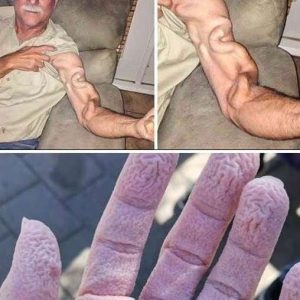Demi Moore’s early life was marked by deep instability and trauma. Born in Roswell, New Mexico, in 1962, her biological father, Charles Harmon Sr., abandoned her before she was born. Her mother, Virginia, remarried a restless ad salesman who frequently changed jobs. As a result, the family moved constantly. This physical instability mirrored emotional chaos at home: alcoholism, heavy debt, and frequent domestic violence created a toxic, unpredictable environment. Moore later said she felt she had to “adopt different characters wherever I went” just to survive and fit in. One of the most harrowing episodes occurred when her stepfather, in a drunken rage, kidnapped her and her younger brother, Morgan — a stark illustration of how unsafe her childhood was.
At around age 12, Moore discovered a marriage certificate that exposed a profound lie: the man she thought was her father wasn’t her biological dad. This revelation shattered her sense of identity. Not long after, her mother attempted suicide, and Moore — still a child — intervened, prying pills from her mother’s mouth in a desperate bid to save her life. Though her mother survived, Moore’s innocence was lost forever. Tragedy struck again after her parents divorced and her stepfather died by suicide: she came home one day to find an older man inside the house. He claimed her mother had “sold” her for $500. Whether literally true or not, this betrayal left a painful scar, compounded by her mother’s recklessness and history of exposing her children to dangerous adult attention.
With little stability, Moore took a risky leap: she dropped out of high school and decided to become an actress. She had no formal training — just determination and instinct. Her perseverance paid off when she landed the role of Jackie Templeton on General Hospital. But the ghosts of her past followed her into stardom. The pressures of fame triggered a spiral into alcohol and cocaine abuse. During the filming of Blame It on Rio (1984), her substance use became so extreme it “threatened to burn a hole through her nostrils.” It wasn’t until the directors of St. Elmo’s Fire forced her into rehab that she began to heal. That intervention became a turning point: she embraced sobriety, which she later described as “a profound gift” that saved her both personally and professionally.
In the 1990s, Demi Moore reached the height of her power. She starred in blockbuster films like Ghost and Indecent Proposal, building a reputation not only as a talented actress but as a savvy businesswoman. She negotiated unprecedented pay, breaking records for female salaries in Hollywood. Her marriage to Bruce Willis—himself a major star—made them one of the most recognizable couples of the era. From the outside, she seemed invincible: a woman who had conquered her past, mastered her craft, and commanded respect and influence in an often-unforgiving industry.
Still, success did not erase her inner demons. During her marriage to Ashton Kutcher—16 years her junior—she faced profound heartbreak. Eighteen months into their relationship, she became pregnant, but suffered a miscarriage around six months in. Moore blamed herself, feeling guilt over her drinking and smoking earlier in the pregnancy. Kutcher made dismissive remarks about alcoholism, which deepened her shame. In trying to become what she thought he wanted, she relapsed into drinking. The relapse took a toll on her relationship with her daughters, triggering a three-year estrangement. Her marriage to Kutcher ended in 2013, leaving her at another crossroads, one that forced her to recommit to healing and self-discovery.
Today, Demi Moore stands as a powerful example of resilience. She speaks openly about her traumatic past — not for sensationalism, but to give voice and comfort to others who’ve endured similar suffering. Her recent work reflects this honesty: in 2025, she stars in the Paramount+ series Landman and has been critically lauded for her role in the film The Substance. Her performance earned her major awards, including her first Golden Globe, and her story landed her on the cover of Glamour’s 2025 Women of the Year issue. Through her art and her advocacy, Moore has turned her painful beginnings into a legacy of strength, truth, and renewal.




